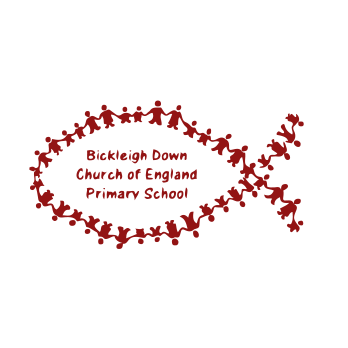Collective Worship
Collective Worship is a statutory requirement for all schools in England and Wales. At Bickleigh Down C of E Primary School, Collective Worship is so much more than this. It is a time when the school family meets together, learns together, reflects together, a time within which children and staff are given time to be still, to engage and, if they feel called, respond.
|
|
Monday |
Tuesday |
Wednesday |
Thursday |
Friday |
|
Key Stage 1 |
Whole School Worship |
Awards |
Key Stage Worship |
Class Worship |
Whole School Worship |
|
Key Stage 2 |
Whole School Worship |
Class Worship |
Awards |
Key Stage 2 Worship |
Whole School Worship |
Children Leading Worship
At Bickleigh Down C of E Primary School children leading worship is a central part of what we do as a school. The children will have the following responsibilities.
|
Before Collective Worship |
During Collective Worship |
After Collective Worship |
|
Setting up The children will:
|
Gathering The children will:
|
Clearing up The children will:
|
|
Welcoming The children will:
|
Engaging The children will:
|
Recording The children will:
|
|
Planning The children will:
|
Responding The children will have the opportunity to:
|
Evaluating The children will have the opportunity to:
|
|
|
Sending The children will have the opportunity to:
|
|
Format taken from 'Children leading worship' by Helen Matter.
